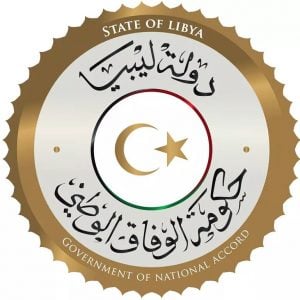By Sami Zaptia.

London, 9 August 2020:
In a meeting held Saturday between Libya’s internationally recognized prime minister, Faiez Serraj, and Libya’s three main official oversight bodies, the Administrative Control Authority, the Audit Bureau, and the Anti-Corruption Commission, Serraj stressed his full support of the bodies to conduct investigations and inspections of all files related to corruption and waste of public funds.
He also stressed that all institutions of the government sector must comply and cooperate with these bodies, stressing the need to establish the principle of transparency and integrity, and the rules of governance.
Serraj also confirmed his full support of the agreement between the three bodies to formation a national team to develop the national strategy to combat corruption.
During the meeting it was also agreed to activate the existing but unused financial disclosure system for state officials and speed up the adoption of the public sector corporate governance manual.
Analysis
It is unclear why Serraj has chosen this time to raise the issue of state-sector corruption. It may be just posturing and putting on a show to reduce public disquiet. There have been more reports of internal fissures amongst the ruling western Libyan elite. Since the external enemy, Hafter, has been pushed afar to the Sirte-Jufra unofficial ceasefire line, the stakeholders in Tripoli have once again started to turn on each other.
Ultimately, they lack any domestic legitimacy and accountability with the Libya’s political split meaning that its parliament is equally split and redundant.
The failure to control the runaway Coronavirus outbreak despite spending LD 500 million (compared to Tunisia’s miniscule budget) has started a finger-pointing round robin.
The Presidency Council has turned on each other as they object to Serraj’s unilateral rule. The continued ineffectiveness and simmering public anger at rising coronavirus cases, power, petrol, diesel, cooking gas, cash, and water shortages, has meant everyone is trying to avoid taking blame and attempting to apportion blame on others.
Meanwhile, western Libyan militias continue to jostle for more power, positions and remuneration in compensation for their ‘‘victory’’, as they see it, of keeping Hafter out of Tripoli.
The problem is the three state entities that are charged with oversight of the state bureaucracy – are themselves state bureaucracies. Bureaucracies are bureaucracies and are not best suited to overseeing or purging their fellow bureaucrats. In effect there is a silent and unspoken conspiracy by Libya’s bureaucracy against the public.
They make noise and play at reform, oversight, investigations, accountability, and justice – but in reality, there is no real incentive for them to do so. More importantly, there is much disincentive for Libyan bureaucracies to expose one another – as they all have skeletons in their cupboards. They all feed off the rentier state system and are not interested in rocking the boat or bringing the whole corrupt edifice crashing down.
Ultimately, they are not accountable to the executive government of Serraj, but to the now redundant and split parliament. Like most of Libya’s bodies since the redundant 2015 Skhirat Libyan Political Agreement, they operate in a void without any accountability and without the fear of being sacked.









